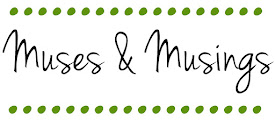 |
| Because this moment will be here before you know it |
As a professional writer, I’m often asked to help seniors with
their college application essays. As kids begin the application process in
earnest, they start panicking: “I’m not sure my GPA/ACT/SAT scores are good
enough to guarantee admission into my dream college and I need my essays to PICK
UP SOME SLACK.” Parents are equally anxious, but more in the strain of “if you
use poor grammar on a college essay it will humiliate you, me, your teachers, and
everyone we have ever known, ever.”
I have great news for all you seniors and parents of seniors!
I have read many, many, MANY essays over the years, and generally speaking grammar
isn’t usually a big problem. I also have bad news: generally speaking, grammar
isn’t usually a big problem. I say that’s bad news because grammar
mistakes are easy to spot and easy to fix. The most common mistakes I see aren’t
always as straightforward, but they will make an otherwise winning essay nearly
unreadable … not exactly the shining endorsement piece you want to send off to
college admissions, eh?
I’ve boiled down the most common mistakes I see on essays into
my top 5 favorite hits — take a look and be sure if I edit your essay I won’t
find any of the following:
It takes far too long
to get to the point. Admissions officers are busy. Very busy. They are plowing
through piles and piles of essays, so don’t make them dig for the point of
yours … because they won’t. Once you land on a decent idea for an essay ask
yourself “what’s my point?” Once you’re
crystal clear about the point you’re trying to convey, write this in nice, big
bold letters at the top of your draft for reference — then make sure everything
else you say ties back to The Point. Just doing this one thing solves SO many
problems. Trust me, it works … I use it on every piece I write. Once you have
your Point, some iteration of it should be in the first few sentences — and
certainly no further down than the first sentence of your second paragraph.
Making the reader do
your legwork. Whether it’s The Point or a supporting point, tell your
reader why it matters. Don’t throw
something like “the ‘tiny house’ trend is a horrible idea” against the wall and
think it will stick — you must tell the reader WHY it’s a horrible idea. For
example:
“I spent last summer living with my entire family in an RV smaller than
most suburban master bathrooms, and I promise the small house trend won’t last.
Why? Because living in uncomfortably close quarters lacking privacy is a recipe
for disaster for any family. Or it would be if you had enough space to cook and
eat a meal, which you definitely do not.”
See that? The writer makes an
assertion: “…the small house trend won’t last” then backs it up with a sensible
answer.
The lead sucks.
If you aren’t engaging your reader right out of the gate, you’re done before
you start. A great lead creates an emotional connection with the reader and
makes them want to keep reading. It’s the most important part of your essay, so
keep plugging away until it’s just right.
The flow is off.
You’re telling a story, and stories don’t necessarily happen in chronological
order. In other words, just because an event happened first on the calendar
doesn’t mean it happens first in an essay. Make sure your paragraphs connect
with each other and that they are ordered in a way that brings the reader along
smoothly — one paragraph builds on the next, which builds on the next, until
you pull the entire story together in your conclusion.
It’s a cookie cutter
essay. Could someone change out your details with theirs and have pretty
much the same essay? Then you have a cookie cutter on your hands. The point of
your essay is to guarantee you stand out in a sea of thousands. Don’t rely on
standbys like sports, mission trips or tanking a class. These admissions
counselors are trying to get to know you, to take a peek into your story to see
if you’re a good fit for their school. Get creative. Tell them something they
didn’t read two essays ago. Deglaze their eyes.
Avoiding these top college essay mistakes ensures you’ll
have a leg up when admissions readers are plowing through their too-big stack
of essays. Now … get busy!
If you, or someone you
love, needs help editing, proofing or, for that matter, starting a college essay, shoot me a note at amymacpr {at} comcast {dot} net
and I’ll be happy to gently and lovingly bully them through the process.
Don't miss a post! Subscribe here:







